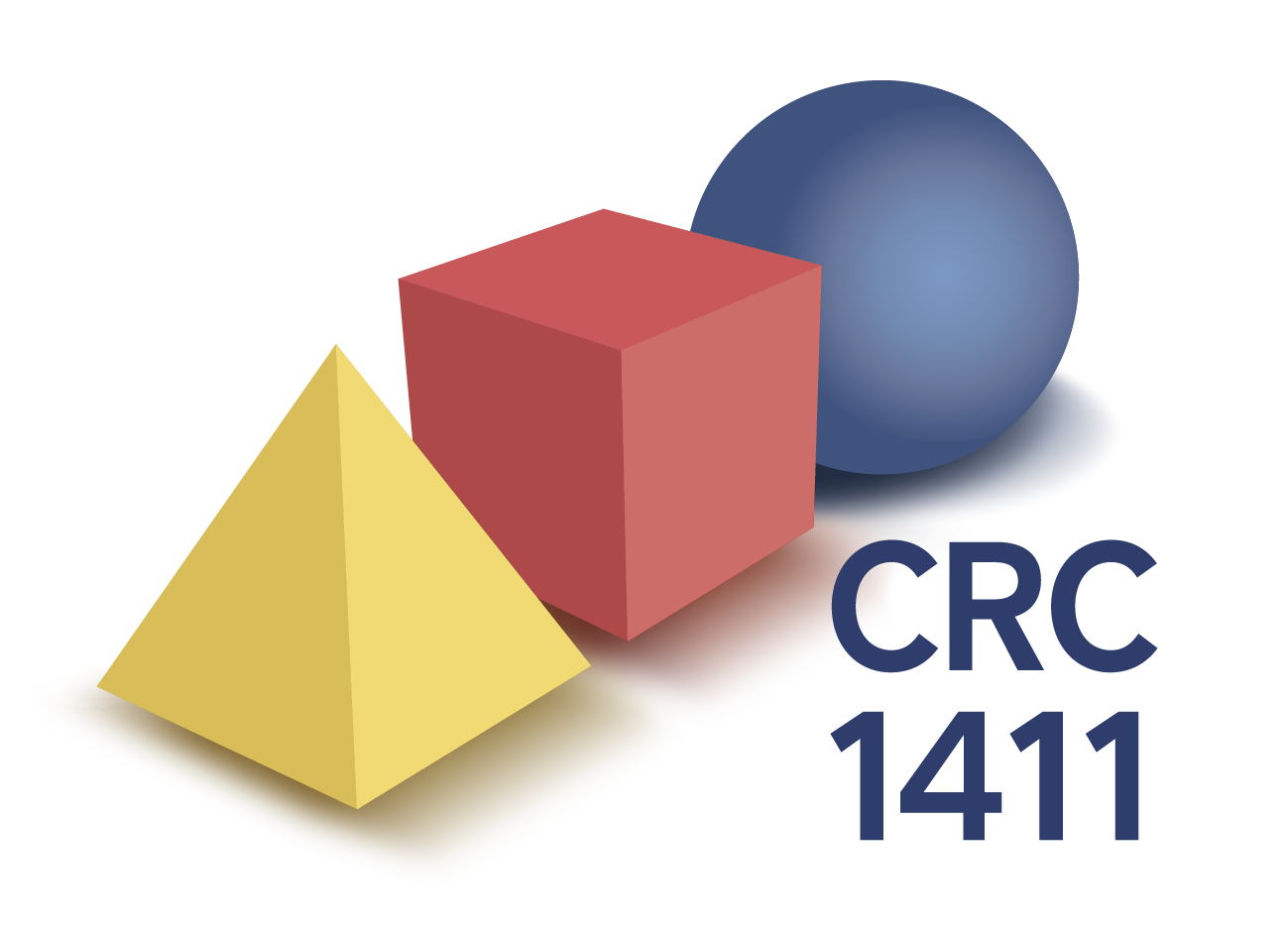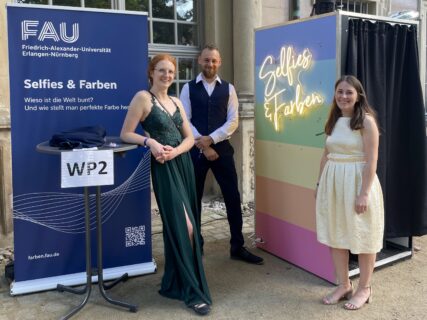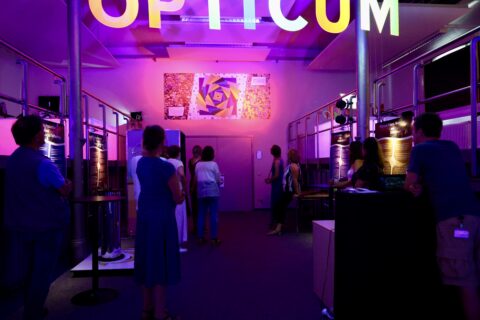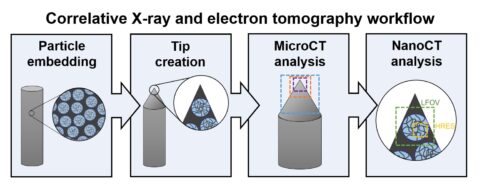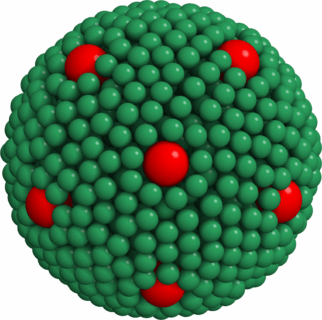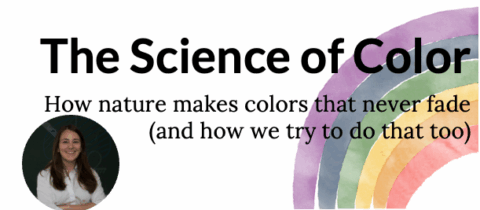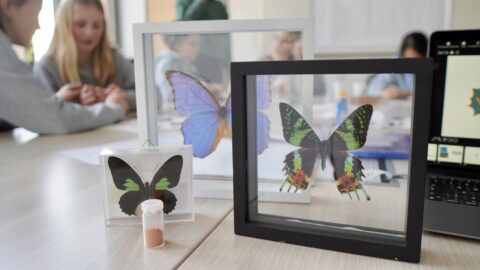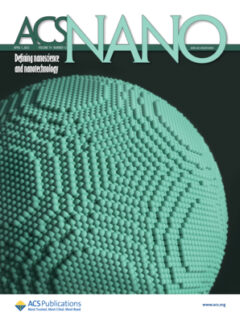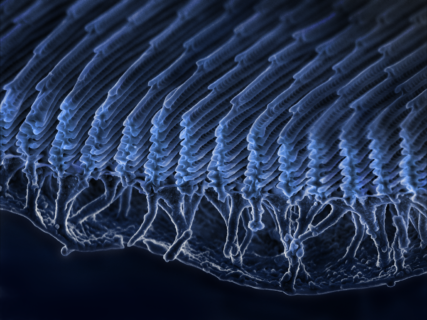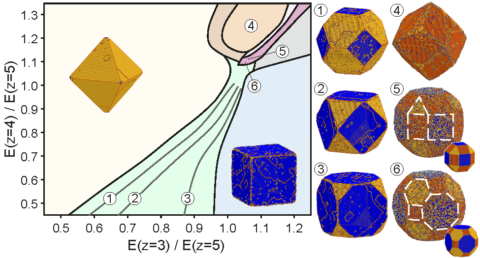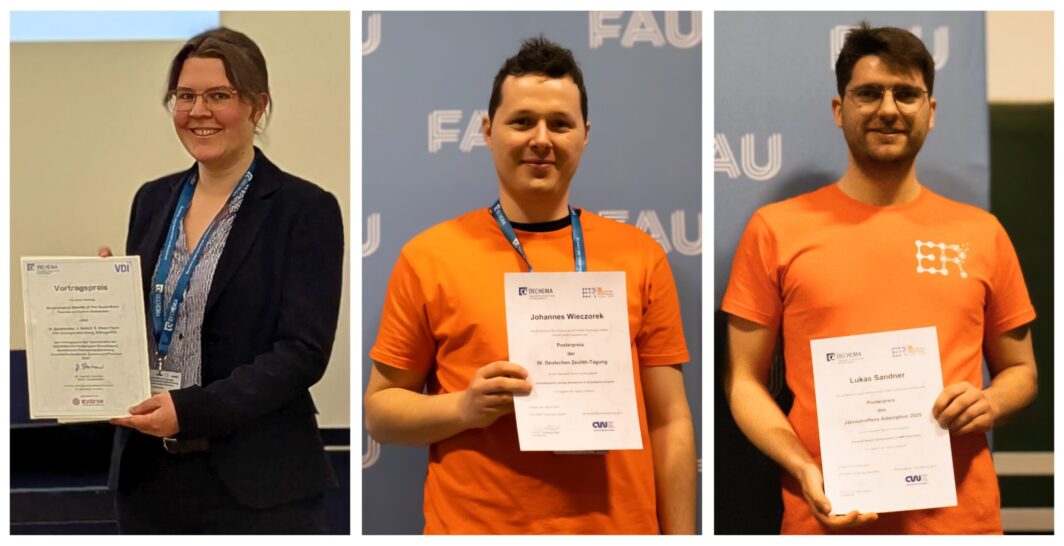Past events
Outreach Photobooth at the Schlossgartenfest!
Our First Workshop for primary school teachers
Correlative X-ray and Electron Tomography Workflow Enables Multi-Scale Analysis of Complex Particle Systems
Entropic trapping in colloidal clusters
Upcoming Talk: The Secret Science of Color
CRC 1411 Researchers Inspire Young Minds on Girls’ Day
Kicking Out the Magic: When Colloids Score a Football Formation
CRC1411 Researchers Collaborate with GEO Magazine
How do nanocrystals form? – Publication in JACS by CRC 1411 researchers
iRTG-ParSciTech members honoured at spring meetings on interfaces, adsorption and zeolites
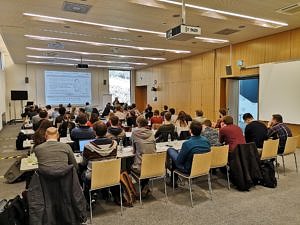
The CRC 1411 Kick-Off meeting took place in the idyllic surroundings of the Fraunhofer Foschungscampus in Waischenfeld from 9-10 March 2020. The over 50 attendees included the CRC 1411 PIs, the External Advisory Board, postdocs, and current and future doctoral researchers. With the meeting almost overshadowed by the gathering storm-clouds of the COVID-19 crisis, most participants will probably look back on it as their last “normal” scientific gathering for a long time! However, in a foretaste of the “digital leap” that we would all soon make, two future doctoral researchers who were already stranded in their home countries joined the plenary sessions via video-link.
The meeting started with presentations of the whole initiative and of the individual subprojects. Following this, the PIs met with the External Advisory Board in order to discuss the CRC 1411 research and dissemination strategy and to receive valuable input from the viewpoint of industry and academia. At the same time, the iRTG-ParSciTech members took part in a seminar on Good Scientific Practice given by Dr Christian Schmitt-Engel of the FAU Graduate Centre. After dining, the attendees were treated to an entertaining series of “flash talks” by the iRTG members. The purpose here was get to know the young researchers who would, for the next years, be tasked with putting so much of the CRC 1411 vision into action. With just 4 minutes and 3 slides each, the iRTG members came up with highly imaginative and often amusing ways to introduce themselves and their scientific backgrounds and goals.
The morning of the second day was devoted to the three CRC 1411 Working Groups and the INF project. The former are devoted to interdisciplinary challenges which are common to many of the CRC 1411 projects: Scale up, Particle-Surface interactions and Parameter estimation. The INF project aims to establish a framework for the storage, sharing and processing of experimental and theoretical data in the consortium. To breathe life into these topics, ideas, challenges and methods were collected and discussion in a World Café format. Here, the participants, in constantly varying groups rotated around the four stations. At each station the discussion leaders (Andreas Bück, Alexandra Inayat and Lukas Pflug for the Working Groups and Fabian Englisch for INF) presented the theme and an overview of the discourse so far. Then participants were then able to present their experience and ideas. The results of the World Café were presented in the afternoon plenary session. Prior to that, the whole consortium attended an illuminating and valuable seminar on equal opportunities in research and teaching given by Dr Susanne Frölich-Steffen. This addressed in particular issues of gender bias in recruitment and helped underline the CRC 1411 resolve to contribute proactively to the further improvement of gender balance at the participating institutions.
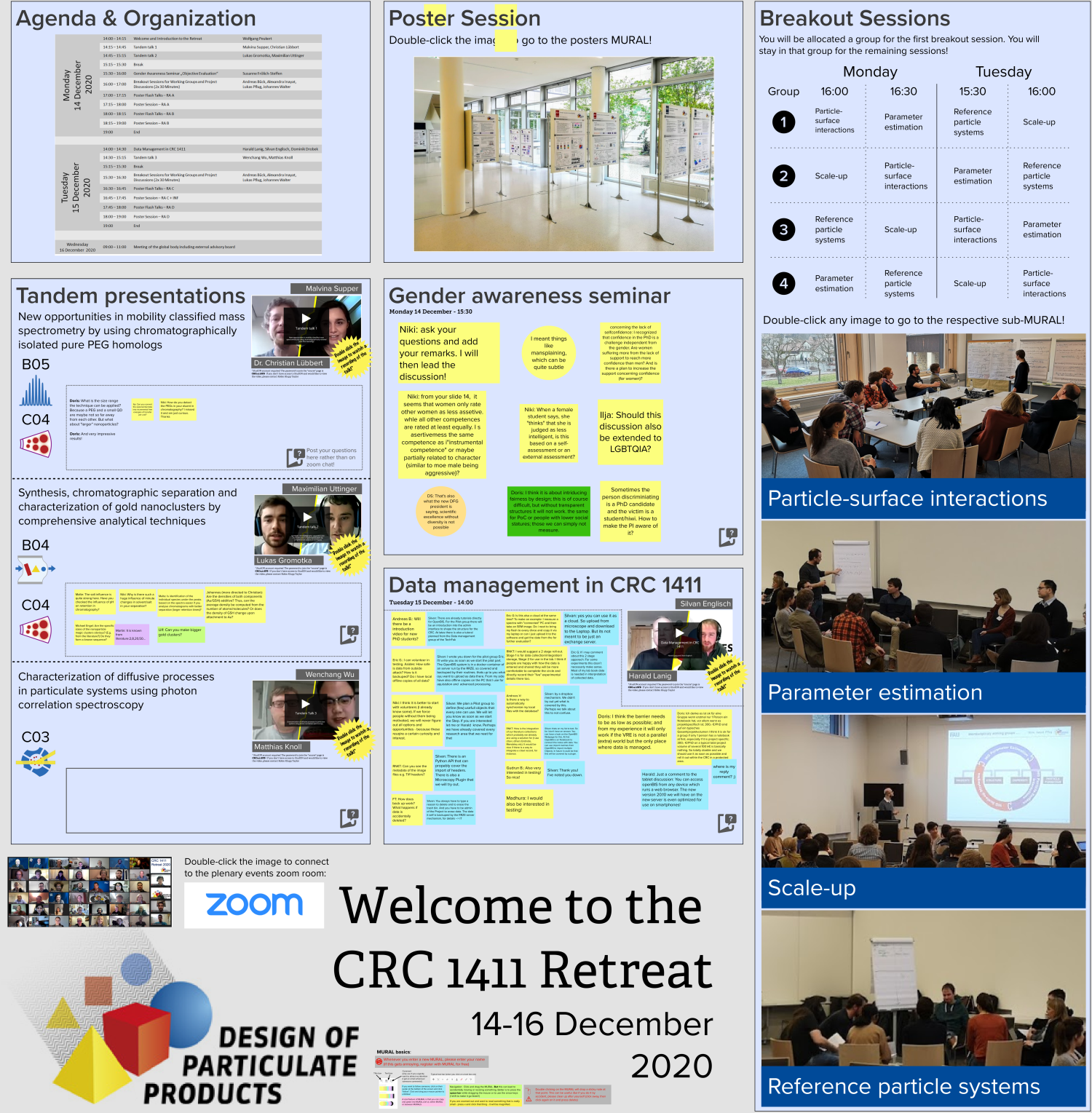
To conclude the first year of activities in CRC 1411 all PIs, participating researchers and our two Mercator Fellows gathered from 14-16 December 2020 to reflect on progress and plan for the next year. Originally conceived as a 2 day event at the Forschungscampus Waischenfeld, negative developments in the coronavirus pandemic meant that the retreat had to be held fully online over the course of two afternoons. However, this did not detract from the excellent progress and enthusiasm in the CRC, despite the challenging circumstances of 2020, as demonstrated by an inspiring programme of tandem talks, a seminar on gender awareness, breakout discussion sessions and a poster session. To provide a central “place” to meet and organise all these activities, the retreat was administered from a MURAL (see the image) which allowed attendees to post questions and comments and also to open zoom rooms and other MURALS where the poster and breakout sessions were held. On each day there were two tandem talks. On day 1, these highlighted collaborations between participating projects of CRC 1411, particularly those considering the chromatographic separation of PEG homologs and nanoparticles. On day 2, a talk was given by two researchers working on project C03, concerning novel and powerful characterisation approaches for a critically important process for the CRC, the diffusion of nanoparticles. Then, researchers of the INF project presented the electronic lab notebook tool which has been chosen to support the management and storage of experimental and theoretical data generated in the CRC.
Following up from a seminar for members of the Integrated Research Training Group in Particle Science and Technology, Dr Susanne Frölich-Steffen gave a presentation on objective evaluation from the perspective on gender awareness and in the context of the CRC. The ensuing discussion brought ideas on how to continue to make the research environment evermore inclusive.
The retreat also provided an opportunity for researchers to meet and discuss in smaller groups. As with the kick-off meeting in March 2020 these were organized around the 3 Working Groups with the addition of a further group to discuss suitable reference particle systems. Each discussion group was realised as a zoom breakout session with a dedicated MURAL. The latter played an identical role as flip-chart, except that all the information in it was electronically stored and can be easily returned to and reviewed long after the meeting.
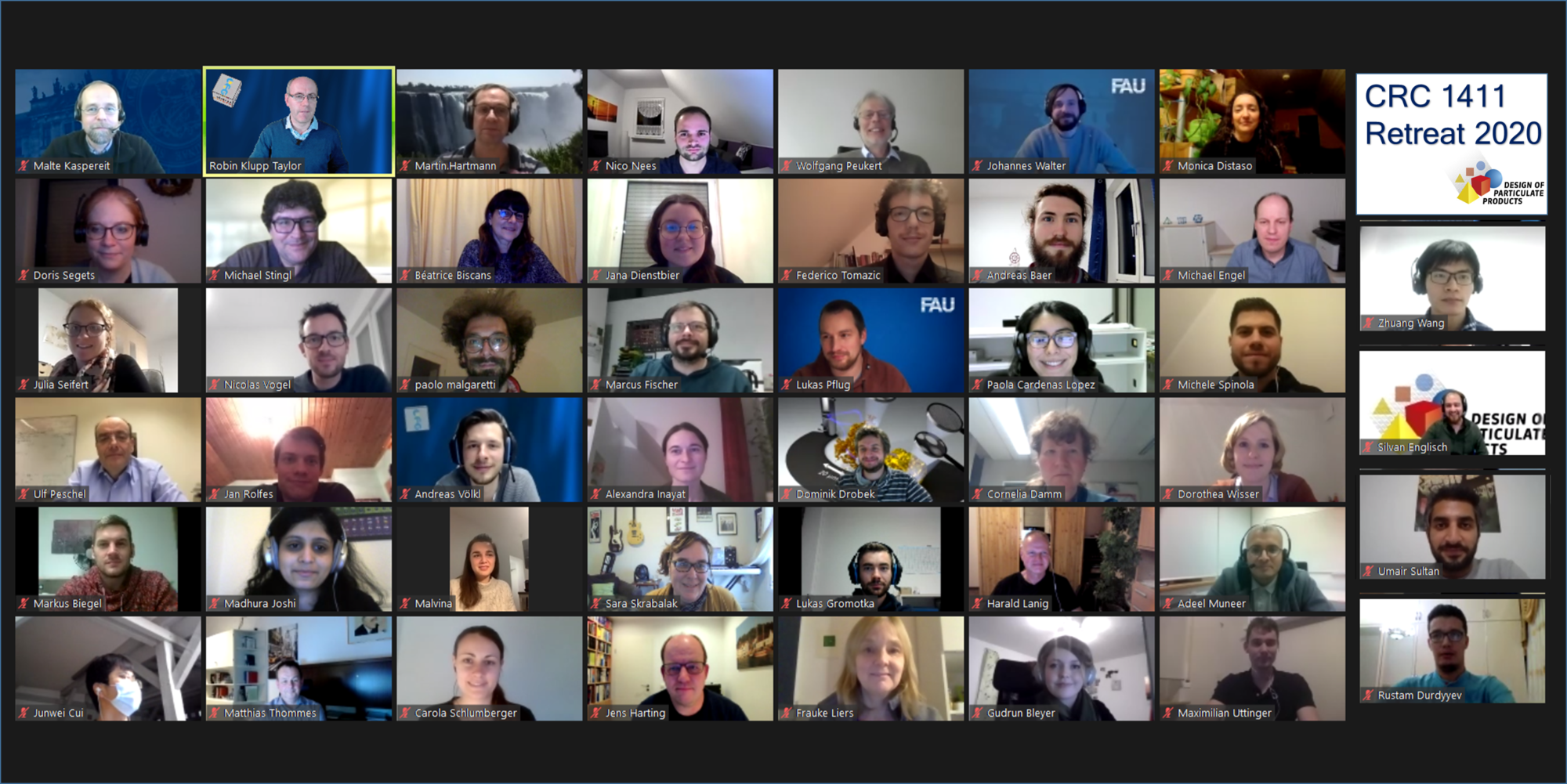
A highlight for many was the poster session – feedback from the participants suggested this was the most interactive digital poster session many had experienced in 2020. Each research area of the CRC had one dedicated session. The sessions started with flash talks on zoom, giving the presenters a couple of minutes each to outline the main thrust of their poster. Then attendees then moved to the “poster hall”, in reality a MURAL on which all 21 posters were hosted. Attendees could easily zoom in and view each poster, leave questions and comments next to it, and, by clicking on a portrait of the presenter next to the poster, enter into a zoom discussion with them. The ease of use of the complementary technology zoom and MURAL meant that scientific discussions were promoted to the full and new ideas for collaborative research could be fostered between participants.
On the final morning, the PIs met with the External Advisory Board, who provided valuable feedback and input based on their experiences of the previous two days. The overall impression was highly positive, despite the considerable challenges to collaborative research presented by the pandemic situation.

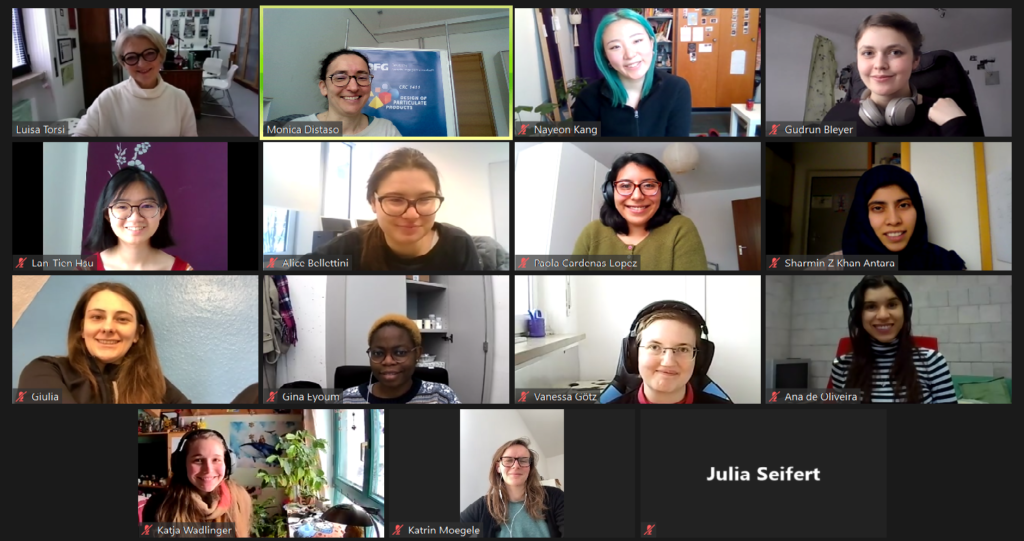
The International Union of Pure and Applied Chemistry (IUPAC) organized 9 February the Global Women Breakfast (GWB) initiative under the motto: “Empowering Diversity in Science”.
For more information, please visit this link: https://iupac.org/gwb/information/
Considering that very few women reach top academic positions, there is often a lack of positive role models that can inspire young generations and bridge the gender gap in science and technology. Therefore, the i-RTG ParSciTech of the CRC1411 “Design of Particulate Products” was glad to take active part in the GWB 2021 and connect with Prof. Luisa Torsi for an informal chat with PhD candidates and students.
The meeting took place via zoom in a relaxed atmosphere that promoted open discussion between the participants. It was a great inspiration for our PhD candidates and students to talk with Luisa in occasion of the IUPAC Global Women Breakfast 2021!
 |
Professor Luisa Torsi received her Ph.D. in Chemical Sciences from the University of Bari in 1993. She was a postdoctoral fellow at Bell Laboratories from 1994 to 1996 and between 2005 and 2006 was an invited professor at the University of Angers and Paris VII. She has been a full professor of chemistry at the University of Bari since 2005, and from 2017, appointed an adjunct professor at the Åbo Akademi University in Finland. Prof. Torsi has authored more than 200 papers and has been awarded research funding of over €26 million in 13 years, comprising several European contracts as well as national and regional projects. She has delivered more than 170 invited lectures, including nearly 40 as plenary and keynote contributions at international conferences. Prof. Torsi has won numerous significant accolades over her career, including notching up several firsts as a woman in science. In 2010, she was awarded the Heinrich Emanuel Merck prize for analytical sciences; this marked the first time the award was given to a woman. She is also the immediate past president of the European Materials Research Society, again the first woman to serve in this role. Prof. Torsi received the 2015 Platinum prize of the Global-Women Inventors and Innovators Network at the British Library in London. In 2017, she was elected as a Fellow of the Materials Research Society, for her pioneering work in the field of organic (bio) electronic sensors and their use for point-of-care testing. |
|
In 2019, she received the IUPAC “Distinguished Women in Chemistry or Chemical Engineering” award. The analytical chemistry division of the European Chemical Society (EuChemS) conferred on her the Robert Kellner Lecturer 2019. Prof. Torsi is passionate about serving as a role model for younger women scientists. She has given several talks on this topic, including a TEDx talk, and was also a member of the National Board of the STAGES European project that aims at implementing strategies to trigger structural changes addressing issues connected with gender inequality in science. |
|
